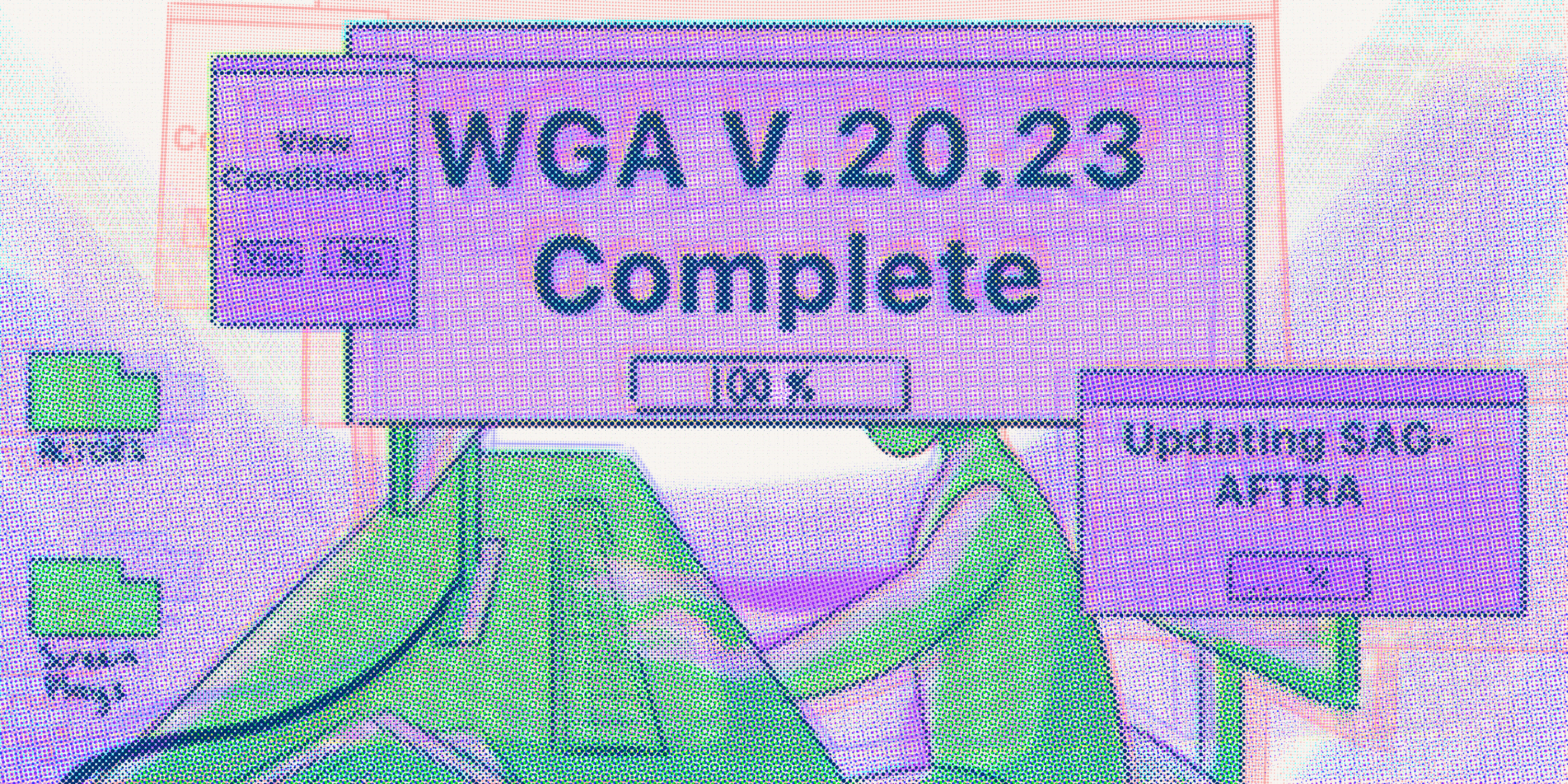Hollywood writers have resumed work while the actors continue to fight for better pay and protections
The Writers Guild of America (WGA), a union representing Hollywood writers, approved a contract with studios on Monday that ended the 148-day strike that disrupted the entertainment industry.
The union stated that 99% of its members voted to approve the new contract, which will run through May 1, 2026.
Background on the strike
The Hollywood writers’ strike began on May 2 after negotiations stalled between the WGA and the Alliance of Motion Picture and Television Producers (AMPTP). The two groups failed to reach a deal for a new contract. Several shows, including many late-night programs, halted production within days of the decision to strike.
For co-screenwriters T.J. Cimfel and Dave White, the strike meant production for their movie, which was bought by Sam Raimi, would be delayed.
“As disappointing as this is – as much of it was a break in our stride that we don’t want to have happen – the strike [was] absolutely necessary,” White said.
After 148 days on strike, the WGA reached a tentative agreement with studios on Sept. 24, which 99% of members voted to approve.
Conditions of the new contract
- Minimum staff requirements for shows: Shows are required to hire between three and six writers per show.
- Minimum duration of work: Writers must be hired a minimum of 10 weeks for shows that have not been approved for production.
- Residual pay based on viewership: CNBC spoke to entertainment lawyer Jonathan Handel, who said the new contract states if a TV series is viewed by 20% of domestic subscribers in the first 90 days of release or within the first 90 days of the year following its release, writers will receive a 50% residual payment.
- Protections from delays in payment: Screenwriters are hired to write a film summary, a first draft and a final draft without guaranteed pay for each step of the process. Without a schedule of payments, writers can find themselves writing and rewriting without pay, according to Cimfel. The new contract establishes protections from delays in payment and ensures regular income for writers.
The biggest condition
The new restrictions regarding the use of AI are the most important conditions to many writers. Studios and streaming services cannot require writers to use AI, and studios must disclose if any material was generated by AI.
There are also payment protections. If AI is utilized to generate a first draft, the writer’s rewrite must be considered the original script. Without this term, writers would be paid less as rewriters as opposed to screenwriters.
“If we didn’t get protections against AI, none of [the other conditions] would matter,” Cimfel said. “AI-generated scripts will not be considered source material under the minimum basic agreement. And that’s huge.”
The actors union is still on strike
SAG-AFTRA, the actors union, which contains 160,000 performers, is still on strike. The union originally joined WGA at the picket lines on July 14 to demand higher pay and establish guidelines about the use of AI.
According to a document released by SAG-AFTRA, actors want an 11% raise to baseline rates this year and an 8% raise over the next three years to keep pace with inflation. Streaming services also threaten their residual payments. Actors retain residuals when a movie or television show re-airs, and this income often keeps them afloat. With streaming services, actors receive a flat fee regardless of its performance.
In terms of AI, there are many concerns about the replacement of real actors with digital copies. This would particularly threaten background actors, who often rely on those smaller roles to achieve a career breakthrough.
Unsatisfied with negotiations from the AMPTP, SAG-AFTRA remains present at the picket lines in Los Angeles and New York. The WGA announced in a statement on Oct. 2 that it will continue to support the actors union in its strike and help with negotiations.
One of the most admirable qualities of the WGA is its communication with members, according to Cimfel. Negotiating committee co-chairs Chris Keyser and David Goodman released video messages to call for solidarity among writers throughout the strike.
“It was so inspiring. You finish watching it, and you’d be like, ‘I am ready to go another year if I have to,’” said Cimfel.
Writers are excited to resume work with studios under the new contract. Jimmy Fallon, Jimmy Kimmel, Seth Meyers and Stephen Colbert’s popular late-night shows were the first to return to air, with others soon to follow.
“You go through these peaks and valleys of feeling connected to your craft,” said Cimfel. “Now that we are back, it all came roaring back to me – the enthusiasm, the excitement, the motivation.”
Header by Mei Harter




NO COMMENT